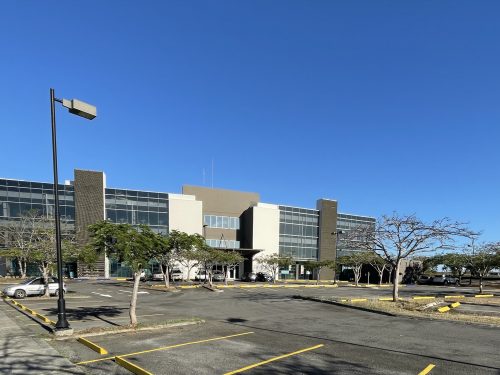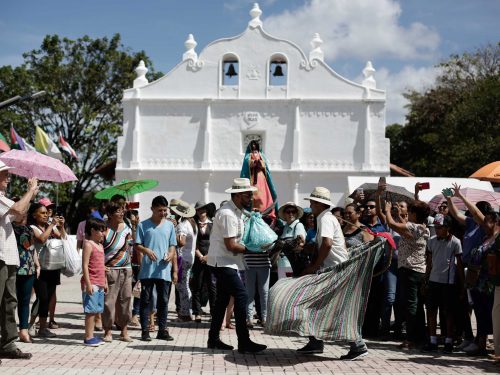
The occupational health council (CSO) brought informative stands and activates to festivities celebrating 195 years of the annexation of the Nicoya Peninsula in order to educate Guanacastecans about the risk they face of surfing heat stroke because of the heat.
The ailment comes about because of overheating in the bodies of workers due to a combination of high temperatures, the physical activity they perform and the clothes they wear.
The CSO is a branch of the Labor and Social Security Ministry (MTSS) and its objective is to encourage public policies that “provide working people with a decent, safe and competitive working environment.”
With their national campaign, they want to raise awareness about essential health measures to prevent heat stroke, such as being in the shade, taking breaks, using special protection equipment and staying hydrated. Inadequate practices can lead to illnesses like chronic kidney disease, which is common in the country.

The La Gozadera program discussed health measures for being exposed to the sun.
CSO’s initiative considered Guanacaste because it is one of the areas in the country that suffers the most from health problems caused by high temperatures.
“We are focused on outdoor work environments because that’s where the greatest risk is of getting sick from direct sunlight,” said Alexa Palacios, spokeswoman for the organization.
That’s why the MTSS developed bylaws for the protection and prevention of workers exposed to heat stroke, which define regulations so that people suffer less often from heat stroke when working under the sun.

There was zumba in the park as part of the activities.
The bylaws detail the obligations of all employers that hire people to work outdoors, such as providing workers with protective clothing, training them to prevent risks and being sure they attend public health centers for kidney function testing.
According to the spokeswoman, one of the campaign’s goals is to encourage compliance with the health protocols at different institutions, a task that is performed by the labor ministry’s inspection department.







Comments